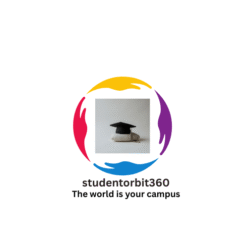Studying abroad is a dream for thousands of students from South Asia and Africa. But with that dream comes a flood of advice, opinions, and often — myths. Misconceptions can delay your planning, discourage you, or lead to poor decisions. In 2025, with changing visa rules, global events, and evolving education systems, it’s more important than ever to separate fact from fiction.
Let’s bust the most common study abroad myths students from India, Pakistan, Nigeria, Kenya, Bangladesh, Ghana, Nepal, and other regions often hear.
❌ Myth 1: “Only the Rich Can Afford to Study Abroad”
✅ Reality: Studying abroad is expensive — but not impossible.
Many students from modest backgrounds fund their studies through a mix of:
- Government or university scholarships
- Education loans from banks or NBFCs
- Part-time work during studies
- External funding bodies or sponsorships
📌 Example: Germany offers tuition-free education at public universities. Countries like France, Sweden, and Austria have low-cost options and scholarships for international students.
❌ Myth 2: “You Must Go to the USA, UK, Canada or Australia”
✅ Reality: While these are popular destinations, they’re not the only ones.
In 2025, students are exploring countries like:
- Germany (tuition-free, strong work visa options)
- Poland (affordable living, English-taught courses)
- France, Hungary, Sweden, Italy, Malta (growing popularity, welcoming policies)
Choosing a country should depend on:
- Budget
- Language comfort
- Career goals
- PR opportunities
- Work rights during/after study
❌ Myth 3: “Without IELTS or TOEFL, You Can’t Apply Abroad”
✅ Reality: Not true in 2025.
Many universities waive English tests if:
- You studied in English-medium institutions
- You provide a letter from your school (MOI – Medium of Instruction letter)
- You opt for in-house English tests or interviews
🌐 Example: Many universities in Germany, Italy, France, and even the UK now offer exemptions or alternatives.
❌ Myth 4: “International Degrees Are Not Recognized at Home”
✅ Reality: Most reputed universities abroad offer globally recognized degrees.
Make sure:
- The university is accredited
- Your course is aligned with career goals
- You check recognition with local education bodies or licensing authorities
💡 Tip: Degrees from Europe, USA, Canada, and Australia are accepted widely, but professional degrees (medicine, law, architecture) may require additional exams at home.
❌ Myth 5: “You’ll Easily Get a Job & Settle Abroad”
✅ Reality: A foreign degree is a big step — but not a guarantee.
Post-study work rights vary:
- Germany, Sweden, France, Canada offer generous work visa extensions
- USA, UK, Australia have competitive job markets
You’ll still need:
- Internships
- Networking
- Local experience
- Career planning
Don’t assume you’ll automatically get PR or a job — work smart!
❌ Myth 6: “Studying Abroad Is Unsafe for Foreigners”
✅ Reality: Most study destinations are student-friendly and multicultural.
Safety depends on:
- Personal awareness
- Researching neighborhoods
- Following local laws and customs
- Using student helplines and campus resources
🎓 Tip: Choose cities with large student populations and established international student support — like Berlin, Toronto, Melbourne, Lyon, Budapest, or Manchester.
❌ Myth 7: “It’s Too Difficult to Adjust Culturally”
✅ Reality: Culture shock is real — but adjustment is possible and part of the journey.
Support systems help:
- Student groups from your country
- International student unions
- Mental health support on campus
- Cooking your own food, celebrating your festivals
🧠 Tip: Keep an open mind, learn local phrases, and build a new routine.
💬 Final Thoughts
Studying abroad in 2025 is more accessible than ever — but only if you plan with the right information. Don’t let outdated myths stop you from exploring world-class opportunities in Europe, North America, or beyond.
✨ Do your research. Compare countries. Apply smart. And don’t believe everything you hear.



